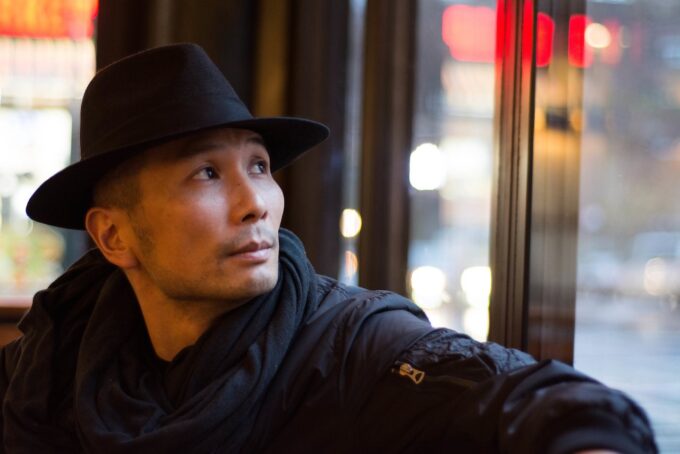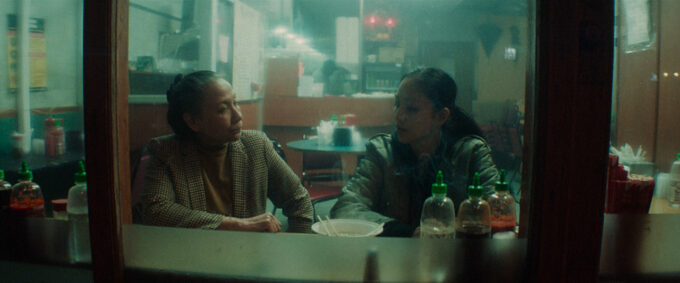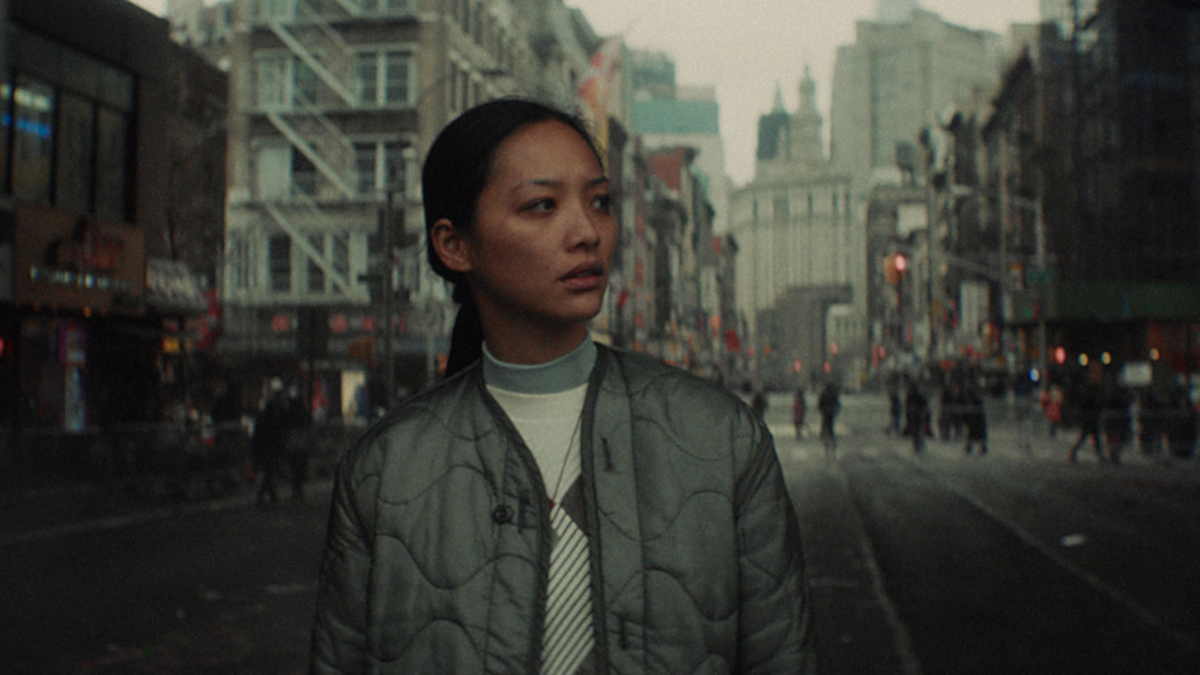And it’s an evergreen story inspired by the past, set in the modern day
Written By: Demi Guo
This article may contain spoilers.
In 2017, Evan Jackson Leong was known for the 2013 hit, “Linsanity,” which had taken up most of his time since. But now he was back on track, slowly working on his magnum opus, “Snakehead.” He had already been developing it for almost a decade.
“It’ll be ten [years] next year,” Leong said to me then. “When I was on the third draft, I thought, ‘Let’s go live in New York,’ me and my wife, so we could make a movie. Moving out here, I’d have to build all-new relationships, find new people. So I worked at MTV for about two years. Then I quit my job, like, ‘I’m gonna make my movie.’”
After that, he had to put it aside to focus on “Linsanity,” but now, in 2017, he was finally about to start production.

Leong is from the San Francisco Bay Area. But the story he so ardently chased for all those years is inspired by the history of New York’s Chinatown — specifically that of Sister Ping, the inspiration for the film. A “snakehead” is what a human smuggler is called in Chinese. Among them, Sister Ping is one of the most famous.
The protagonist is Sister Tse (Shuya Chang), a mother from Fujian province in China, who is smuggled into the United States. She pays off the impossible price of her transport to the smuggler who ran the operation — Dai Mah (Jade Wu) — through labor. To survive the gritty reality of the people who work in the back of Chinatown’s businesses, she becomes a human smuggler herself.
The real Sister Ping, or Cheng Chui Ping, was allegedly responsible for a human smuggling ship that ran aground in Queens, NY and killed several Chinese immigrants in 1993. When she died, one of the largest funeral processions in Chinatown history bore her to her grave. Despite the danger inherent to her trade, Fujianese people considered her a hero for clearing a path for them to the United States.
“The story of what she represents in the community, but also what she did and the way it all happened, was all very intriguing to me,” Leong said in 2017. Once the film was released this year in 2021, I sat down with him again. He reiterated, “Immigrants are the ones that transport everything. They’re the ones who have the keys to the whole import export industry. They got the trucks, they got the businesses, they got the warehouses. As an immigrant, if you can find a way to cut corners and make a little extra cash on the side, you’re gonna do it … You don’t have many opportunities to do the ‘right’ thing.” The United States, he reminds us through the film, is built off indentured servitude and slave labor; every billionaire has earned money dishonestly.

The theme of the film is “understanding your roots.” Sister Tse is a human smuggler, but her journey is driven by the simple love for her daughter (Catherine Jiang). “She kind of enjoys it. She likes the power,” Leong said. “It’s the idea of her kind of never forgetting why she’s here in America, but at the same time she’s going off doing all these crazy things that she likes.”
This theme strikes a note with most Asian Americans, including Leong himself. He is a sixth-generation Chinese American. Say the name of his ancestral home, “Zhongshan,” and he has no image or memory to associate with it. The daughter is seen from Sister Tse’s perspective — distant, far away. An American-raised girl who lives a life away from the gang life, she does lion dances with her troupe during the New Year and plays piano in the Transfiguration Roman Catholic Church on Mott Street. She is as distant from her mother as many Asian Americans feel from their parents’ country.
Sister Tse butts heads with Dai Mah and her two sons (Sung Kang and Richie Ng) while watching over her daughter. Dai Mah is Sister Tse’s narrative foil, a powerful smuggler whom the community respects. She takes Sister Tse into her snakehead empire, emphasizing what Leong says is a very American story: “Gangsters don’t snitch. Can’t give up the gang, can’t give up the family.”
But Dai Mah is motivated by her guilt over how she raised her blood family. Her sons — and this is where Asian women have a chance to feel very seen — are Asian princes. Dai Mah cherishes them as her children, but that same treatment reflects the culture of favoring sons that is prevalent across Chinese families. The film is set in the modern day, so their goofy mannerisms and machismo reflect men we all know — the former makes you laugh in fondness, the latter with complete and utter validation.
“Asian males, a lot of the time they’re just little … princes. I’m a male filmmaker trying to make this woman’s story. I know that. Women have been sharing their story for years,” Leong said. But they aren’t always told in a way that appeals to male audiences. “I know this movie would appeal to males, so it might affect on a subconscious level what they think of Asian women after this — that’s something I’m excited about.”

While working under Dai Mah, Sister Tse strikes up a friendship with Zareeb (Yacine Djoumbaye), an immigrant in similar straits. Zareeb was many different kinds of characters, said Leong, but was inspired by a familiar scene in Los Angeles: Mexicans and Koreans working together. “There’s an immigrant connection,” Leong said. “They are two completely different worlds, but they have so much in common. Working hard in a restaurant, for a little money, just for the opportunity for their kids.”
The ethnic diversity of New York is different. When Leong and company moved out to make “Snakehead,” he had to consider people of different backgrounds until he landed on Zareeb, an immigrant of African extraction.
A trace of the Latino-Asian unity still lives on in a scene where Sister Tse confronts an anti-immigrant militant. (Please watch it, it’s satisfying.)
“Snakehead” came out this year after more than a decade of work.
Over the years, there were moments when Leong became too ambitious and had enough plot threads for a full-blown television series, but not an hour-and-a-half long film. He cut out a lot, even a climax scene between Rambo (Kang), Dai Mah’s older son, and Sister Tse, where they open the doors to a room where dozens of smuggled humans are stored like sardines.

While riding the high of seeing a mission accomplished, Leong is fully aware that it premiered in a new world. Five years ago, he was struggling to find Asian American actresses who would star in this film — a passion project paid out of pocket. “This movie didn’t have money, so every single scene and every single prop and every single location was basically donated to us.”
In the 2017 interview, he said:
“It’s hard to raise money for Asian American funds. We’re not proven to make the money back, we’re not proven to make box office money. Indie films in general is a dying cause. A lot of people don’t watch it. You see great films in theaters, but no one’s there.”
Now, entertainment giants like Disney and Netflix actively seek diverse storytelling, releasing more and more Asian American stories like “Raya and the Last Dragon” and “Over the Moon.”
“I’m not jumping off a trend,” Leong said. “This is something I always thought about for a long, long time.” His goal was always to make people see and feel something different from what they were already seeing on the screen.
Even as “Snakehead” makes its rounds in film festivals, Leong has already continued onto his next narrative project. “This moment for Asian Americans in our industry, it’s a short one. We’re trending right now,” Leong said. “It’s time to do another one, but I had to get to this point now to get on the next project.”
“Snakehead” was a learning experience for him, not just as a director and screenwriter, but as the person who worked directly with a cast of veteran actors. “I was lucky to get actors who have strong ability,” Leong said. Their experiences opened his eyes up to more possibilities.
He would like to do more character-driven stories as he moves forward. “But,” Leong said, “I’m not that filmmaker yet.”
“Snakehead” makes its East Coast Premiere at the 44th Asian American International Film Festival. Ticket and screening information can be found here.
Editor’s note: An earlier version of this article misstated that Leong worked at MGB instead of MTV.

